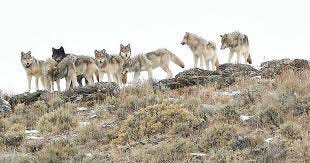If you are looking for the beginning of the study for The Young Carthaginian then you can go HERE for a brief introduction. At the bottom of the introduction you will find the links to each section of the study guide as it becomes available. If you would like to see the growing list of book studies available for free on this site you can go HERE. Enjoy!
Grammar Questions: (The Information of the Text)
Once returned to Carthagena, where did Malchus and his father stay?
Why, according to the text, was Hannibal sparing “no pains or expense” in providing entertainment in Carthagena?
What became of Giscon and his plot?
What did Malchus and his friends decide to go do during their time off?
How did Malchus and his friends try to keep the wolves at bay?
How many of Malchus’ group made it safely into the trees?
What “idea struck Malchus” which eventually allowed him to get away from the pack of wolves?
After Malchus escaped and the rest of the hunting party returned to the site of the wolf attack, what did they find left of Halcon and Chalcus?
How did the wolf attack affect Malchus’ nerves?
What plan did Hannibal share with Malchus?
Logic Questions: (Interpreting, Comparing/Contrasting, Reasoning)
Why would Malchus want to leave the festivities in Carthagena to go on “a hunting expedition”?
Why would wolves fear fire but not swords and arrows?
Why do you think Malchus survived when his friends did not?
What do you think is the first major mistake that Malchus and his friends made which led them into so much trouble with the wolves?
Hannibal says, “It is clear that Rome and Carthage cannot both exist.” Why does he think this?
Rhetoric Questions: (The Analysis of Ideas in the Text)
Malchus’ father told him, “the affairs of nations were not to be settled by the efforts of a handful of enthusiasts, but that grievances, however great, could only be righted when the people at large were determined that a change should be made.” Do you agree with what he is saying or not? Why? Defend your answer with clear reasoning.
Hannibal told Malchus, “Difficulties are made to be overcome by brave men.” What is your reaction to that statement? Do you agree or disagree? Why?
Theological Analysis: (Sola Scriptura)
Read Zephaniah 3:3, Matthew 7:15, Matthew 10:16, and Acts 20:29-30. How does this current reading in The Young Carthaginian illuminate the illustrations Scripture uses to describe false teachers and unjust rulers?



